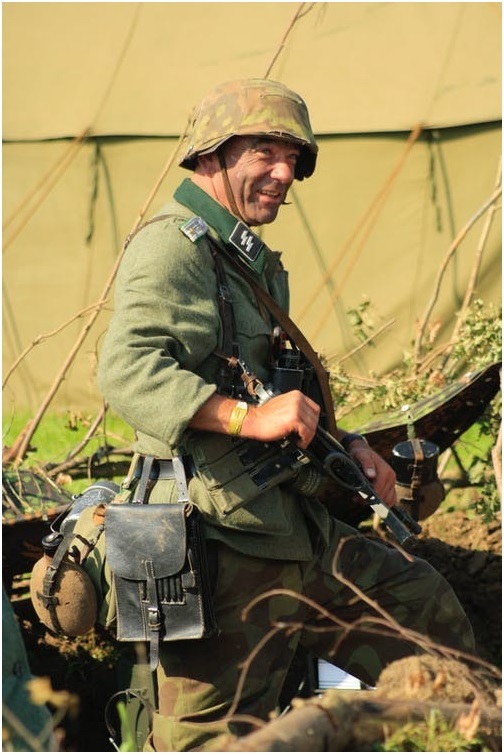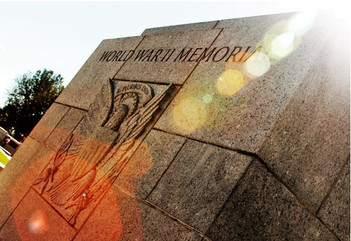A WW2 Reenactment Primer
Apr 20th 2022
Thinking about getting into WW2 reenactment? You’re not alone, and there are thousands of people around the country - and the world, who feel just like you do.
Reenactment gives them a chance to connect with the past, to understand the significance of human behavior and how this shapes the course of human history. For some, reenactment might even be a way to connect with ancestors who served or were lost in significant historical engagements.
Here are some things you need to know before you get started.
Why Participate in WW2 Reenactments?
To some reenactment might seem like a quirky way to engage with historical interests, but there are many unique and colorful reasons why people take part in WW2 reenactments and reenactments in general.
●It’s educational. People that engage in reenactment come across others that have similar interests and are well-versed in history. Reenactors learn about strategy, history, and gear from each other.
●The camaraderie.Reenactors typically have similar interests or backgrounds, so for them, it’s just plain fun.
●To reconnect with history. For some, WW2 is still a living memory. Parents, grandparents, and other relatives may have fought or even died in the war. Reenactment then can be seen to offer solace.
●To develop a better understanding of history. They say there is an old native saying: Tell me and I’ll forget, teach me and I may remember, involve me and I will learn. So many people learn through involvement, and reenactment is the closest thing we have to relive history as the people did who were actually there.
Thinking About Getting Into WW2 Reenactment?
So, if you’re thinking about getting involved in WW2 reenactment, here are some things you should take a moment to think about before starting.
1.Determine how you want to reenact
Not all reenactors enact famous battles or engagements. Some of them simply come together to share information, showcase or demonstrate gear, or sell reproductions. Figure out first where your interests lie before you pursue events involving them.
2.Find an organization
There are organizations all over the United States (and the world) that are dedicated to WW2 reenactment (and other periods in history). Some of them are dedicated to reenacting specific events or certain companies of the military. Find your niche and then find a guild or group.
3.Have realistic expectations

Reenactment is not like what you see on T.V. or in the movies. Take your time and have fun with it but make sure you set realistic expectations.
4.Ask questions
The only truly stupid question is the one you don’t ask. Remember, no one knows everything so no one expects you to. Besides, people enjoy WW2 reenactment because they learn so much from each other. Don’t be the person that’s afraid to ask or share.
5.Educate yourself on the gear and weapons you will be handling or using
Some groups have very specific requirements for what gear you can and can’t carry, for authenticity, and safety. Make sure that if you’ll be carrying it, that first, it’s permitted, and second, you know how to safely use and maintain it - whether it’s a mess kit or a Mauser.
6.Remember to be safe, at all times, no matter what
You may be handling live-fire weapons, and even weapons that are shooting blanks or pyrotechnics can be very dangerous if handled negligently. Always observe all cardinal rules of all safe firearm handling and ownership.
7.Don’t waste your time investing in low-quality reproductions
Experienced reenactors can spot a cheap fake or a cheap repro a mile and a half off. If you want to enjoy the experience, don’t throw good money after bad.
8.Accept that you will never be done learning - embrace that
As we said, no one knows everything and no one expects you to know everything. You should get into reenacting not only because you know about and enjoy history, but because you are open to learning. Treat it as an educational experience and go in with an open mind.
What WW2 Reenactment Gear Do You Need?
Unfortunately, since every reenactment group has its own rules and regulations, we can’t just make a blanket checklist for you to follow with respect to what you can and can’t carry during a reenactment. That will depend on the rules and bylaws of the organization.
However, we can offer some general pointers.
1.Make sure that your gear is period-authentic.
The organization with which you reenact will have specific rules for what group you will be reenacting and that will determine what you can and should be carrying. You shouldn’t show up to an ETO reenactment with a British Land Pattern Musket. That’s an exaggeration but you get the point.
2.Make sure that your gear is compatible.
This is important - both the Mauser K98k and M1 Garand are period-authentic with respect to, say, America and German forces engaged at the Battle of the Bulge, but a German wouldn’t be carrying American arms. Also, for example, different branches of each military carried different weapons, gear, insignia, uniforms, helmets, and more. Ask questions if you aren’t sure what to pair with what.
3.Train with your gear
You need to know how to operate and use your WW2 reenactment gear if you can be expected to cut a convincing caper. Whatever you get, learn how to use and maintain it.
4.Invest in supporting accessories that increase the authenticity of the arrangement

You might not be required to invest in a specific period-authentic pattern of camo, set of insignia, decoration, or other unique identifiers, but if you do, they will make a nice addition to your collection of WW2 reenactment gear and boost the authenticity.
5.Save the originals for the collection, not the WW2 reenactment itself
Some original gear, weapons, uniforms, equipment, and vehicles are priceless and should not be used for historical reenactment or living history events. If you’re dedicated to preserving history, such as of World War II, save the real stuff for the collection and use high-quality reproductions in the field. It won’t matter if you use these hard.
Get Your WW2 Reenactment Gear at SARCO, Inc.
Interested in what we can offer in the way of WW2 reenactment gear? Take a look through our collection via the link above and get in touch with us at 610-250-3960 if you have any questions. We’d be glad to help, and you can also visit us in our shop at 50 Hilton Street in Easton, Pennsylvania for the full experience.

